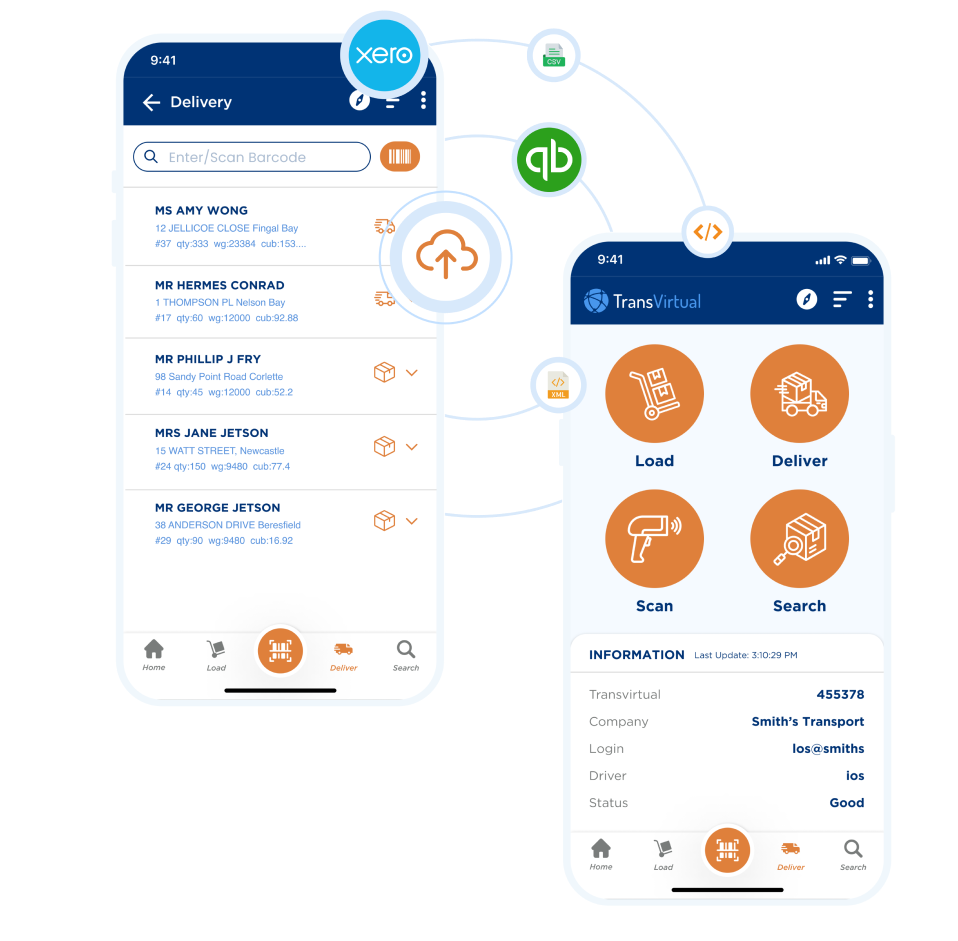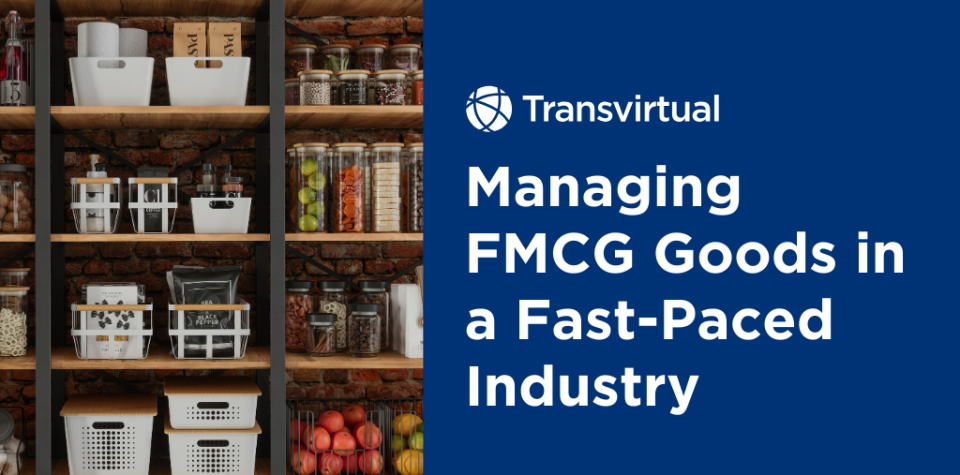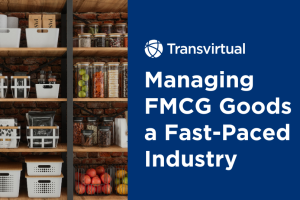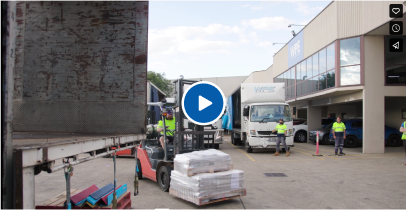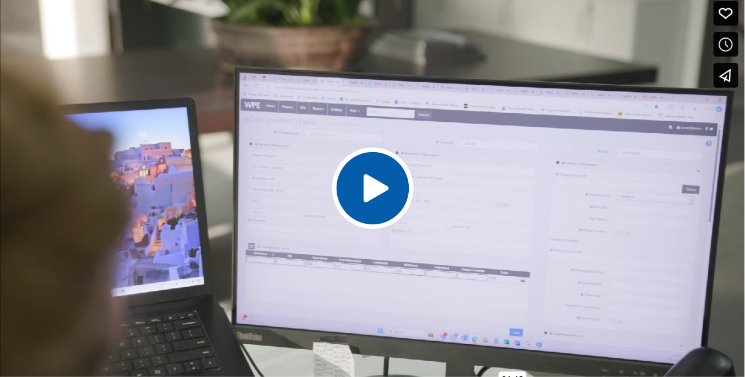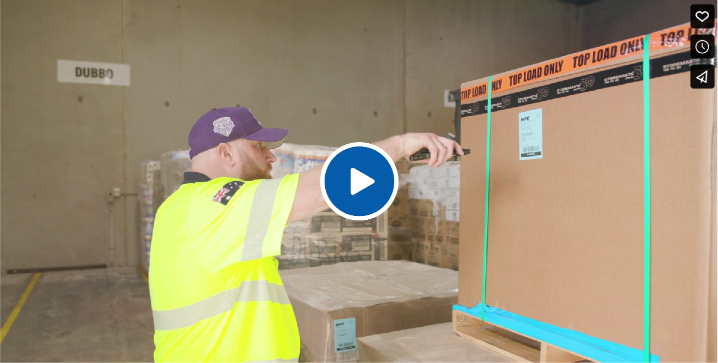One TMS platform, to run your entire network
A Transport Management System that will save you time & money
100% visibility from warehouse to last mile delivery, while connecting your data to your partners to remove errors and accelerate payment
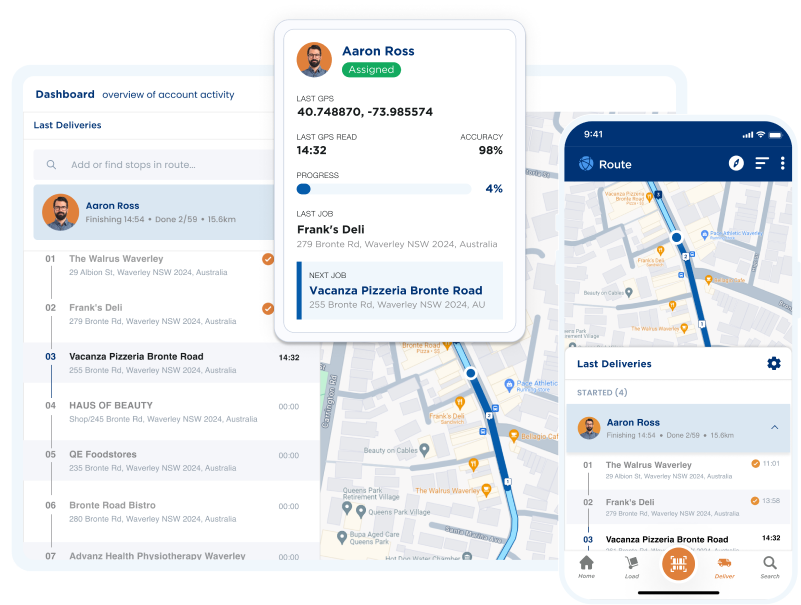
Trusted choice by nearly 100,000 businesses

End to end automation saves you hours of work and delivers a seamless experience

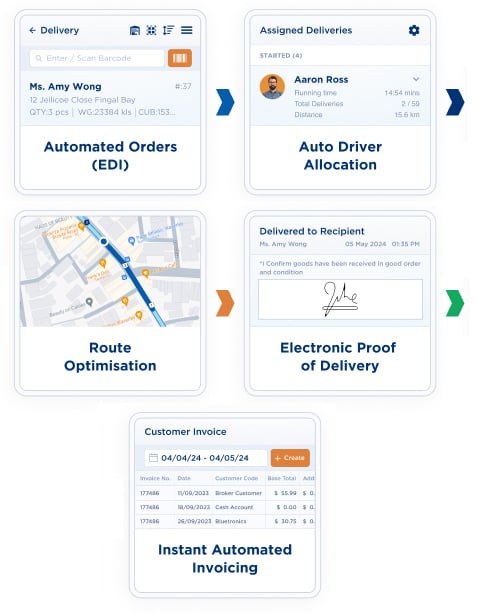
TMS System features that will save you time
Integrate with agents in a few clicks

“Transvirtual has really helped us with our integrations. So many agents are on it. The beauty about it is that you integrate with an agent in literally three clicks.“
Roy Kazamias, CRL Express Director
Streamlined invoicing, faster payments

“The integration module of invoicing has been seamless. From our admin perspective, it helped us with our invoicing, with our payables, it streamlined our processes, which is greatly appreciated by all our clients. Not only has it been seamless but, it’s been accurate all along as well.”
Irwin Amir, Regional Road Express General Manager
Automate rate card management

“Transvirtual’s rate card functionality has really helped us with our lost revenue. We found that when we were on paper con notes many prices would be adjusted on the same laneway and with Transvirtual’s electronic rate card we haven’t had that problem.”
Tom Ritchie, Western Parcel Express Operations Manager
User-friendly logistics customer portal

“Customer portal has been fantastic because the phone calls have gone, the emails have gone, the accountability is placed back onto the customer and the accountability is also placed on our staff [as well].”
Irwin Amir, Regional Road Express General Manager
Never miss a pickup or delivery

“Transvirtual has helped us greatly with allocations. Our fleet controller has never had a smile on his face like he does today. Our fleet controller has been able to eliminate paperwork, been able to eliminate run sheets, been able to allocate work electronically, been able to track drivers and their performance on a regular basis.”
Irwin Amir, Regional Road Express General Manager
Speedy deliveries, improved customer service
“At WPE, we obviously use subcontractors from time to time and we’ve encouraged all of them to go on to Transvirtual as well. It’s exactly the same as having a driver basically out in a truck. So great when they go and deliver something they get it signed on their glass which is usually just their normal mobile phone using the app and that gives us the POD straight away.”
Danielle Ritchie, Western Parcel Express Managing Director
More TMS features that will make you more money

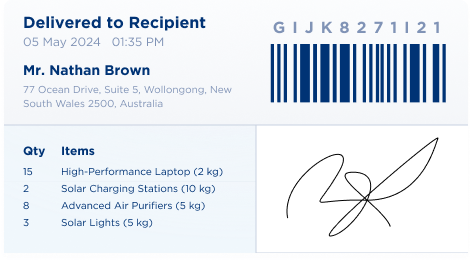
Electronic Proof of Delivery
Capture e-signatures and photo proof upon delivery
Say goodbye to paper documents. Transvirtual’s digtal proof of delivery transforms your operations with real-time data capture.
Instantly verify successful deliveries by collecting e-signatures and photos on mobile devices, enhancing accountability and visibility for businesses and customers alike.

Route Optimisation
Find the fastest, most cost-effective routes
Efficiency is the key to running a profitable transport business. Our enhanced route optimisation tools ensure that your deliveries are completed on time while also reducing costs and vehicle wear and tear.
Scan your deliveries, and our system gives you the best route with turn-by-turn navigation.
GPS Tracking
Track and trace your fleet and deliveries in real-time
Know where your packages and drivers are. Our advanced GPS track and trace system ensures you have real-time visibility and precise location updates.
Real-time visibility ensures that customers get accurate delivery information. It also allows you to cover last-minute jobs or missed pickups in the area.
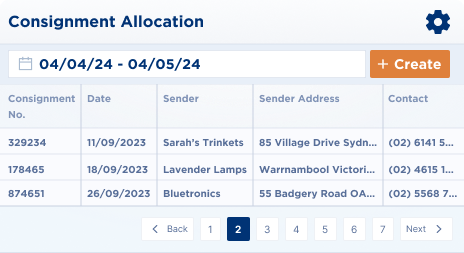
Mobile Barcode Scanning
Unique, item-level barcode scanning
Enhance freight management with precision and efficiency. Our advanced scanners ensure 100% accuracy in product picking
and load tracking, supporting both 1D and 2D QR codes. Real-time data transmission provides instant visibility, enhancing communication and troubleshooting throughout the supply chain.
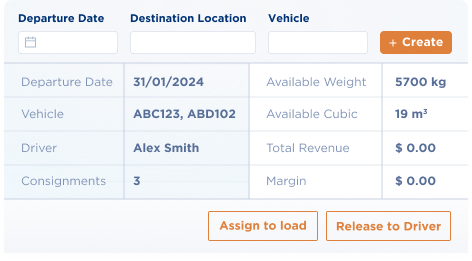
Planning Module
Save 20% of your employee’s time
Our Planning Module optimises day-to-day operations by efficiently managing and organising loads.
Maximise vehicle capacity, reduce transport costs, and improve delivery efficiency by automatically allocating items based on size, weight, and more factors.
Real-time data transmission provides instant visibility, enhancing communication and troubleshooting throughout the supply chain.
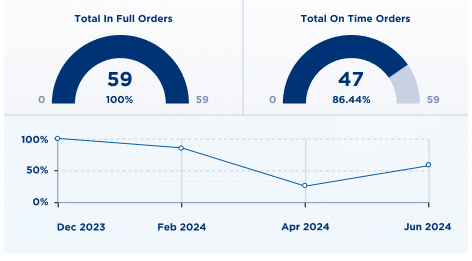
DIFOT Reporting and KPIs
Track and optimise your performance
DIFOT (Delivery In-Full, On-Time) reporting provides in-depth insights into your delivery performance. Track and analyse
shipment accuracy and timeliness with real-time data. This detailed reporting helps you address issues quickly, ensuring that your deliveries meet business and customer expectations.
More Features

Mobile barcode scanning







client testimonials
What Our Customers Are Saying About Transvirtual


Connecting you effortlessly
Integrate seamlessly with 100s of carriers
We integrate with all major carriers as well as 100s of smaller ones. This is just a snapshot, reach out and ask if you have a specific request.

Join over 10,000+ ecstatic transport
management system customers
Our Transport Management System has 500 configurable features to solve your precise problems

Our entire business has been positively impacted by the TransVirtual technology solution, it has allowed the business to scale without creating or increasing inefficient manual
processes.
40% increase in revenue

Anthony Tanner
CEO, VT Freight Express

TransVirtual has reduced customer enquiries by 50% and given our customers full visibility throughout the delivery process. We have also been able to review set routes and find major
cost savings.
40% increase in revenue

Luke O’Shannassy
General Manager, Caledonian Transport
Automation prevented revenue leakage within the business, so a massive benefit for us from a profit perspective, that automation also allowed us to significantly reduce our staff headcount.
40% increase in revenue

Richard Tesoriero
CEO, Hunter Express

Our entire business has been positively impacted by the TransVirtual technology solution, it has allowed the business to scale without creating or increasing inefficient manual
processes.
40% increase in revenue

Anthony Tanner
CEO, VT Freight Express

Automation prevented revenue leakage within the business, so a massive benefit for us from a profit perspective, that automation also allowed us to significantly reduce our staff headcount.
40% increase in revenue

Richard Tesoriero
CEO, Hunter Express

TransVirtual has reduced customer enquiries by 50% and given our customers full visibility throughout the delivery process. We have also been able to review set routes and find major
cost savings.
40% increase in revenue

Luke O’Shannassy
General Manager, Caledonian Transport
Frequently asked questions
Transport management systems (TMS) leverage technology and real-time data to help businesses plan, move, and optimize the movement of incoming and outgoing goods. It also automates otherwise time-consuming tasks, such as invoicing/billing and compliance documentation.
Transport management systems can either be cloud-based or installed on-premise.
Cloud-based transportation management systems, such as the platform we offer in TransVirtual, are accessed via the internet, allowing for real-time updates. They’re more scalable, secure and offer better integration capabilities.
Modern TMS software includes features that ensure timely delivery of goods:
a. Planning: A TMS helps businesses select the best carrier and mode of transport based on cost, efficiency, and distance. It also considers factors like delivery deadlines, vehicle capacities, and carrier performance. Valuable data like this ultimately leads to significant cost savings and improved delivery times.
b. Tracking and delivery: Advanced TMS solutions provide real-time track and trace functionalities, so you get updates throughout the full lifecycle of a load. Upon delivery, you can use electronic proof of delivery (ePOD) to confirm receipt, ensuring accurate documentation.
c. Analytics and optimization: TMS software gathers transport data to help you forecast demand, assess rates and profitability, and swiftly adapt to unforeseen events. You can also leverage powerful analytics tools to measure and track performance over time.
TransVirtual incorporates all these in one powerful transport management system. Have a specific feature you’re looking for? Talk to our experts for a free assessment.
Manufacturers, distributors, retailers, and logistics service providers of all sizes can benefit from a TMS. It’s especially useful when managing a fleet of more than ten vehicles.
Large enterprises traditionally relied on TMS for fleet management, but the rise of affordable cloud-based solutions (like TransVirtual’s TMS) now allows smaller businesses to seamlessly integrate them into their operations.
Unlike cookie-cutter platforms in the market, TransVirtual offers a bespoke experience tailored to your specific requirements. Our platform’s extensive list of configurable features ensures that you can adapt it to suit your unique workflows and preferences. Additionally, our personalized support team provides assistance whenever you need it, ensuring that you get the most out of your TMS investment.
Implementation varies by business, but our software is engineered to ensure quick integration, allowing you to promptly improve your delivery process and experience results.
TransVirtual offers zero upfront costs, and you only pay for what you use. We suggest scheduling a call with our experts so we can discuss what you need and your business size and structure.
Still have questions?
Speak to an expert

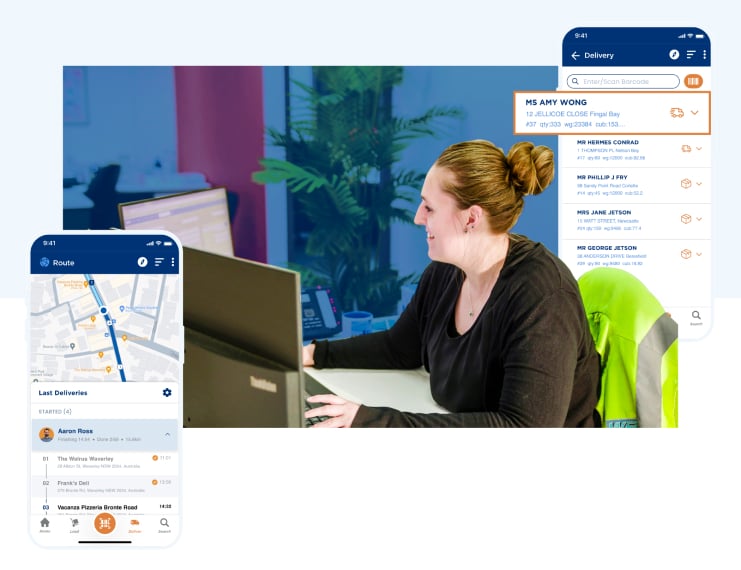
Join thousands of transport companies leveraging the power of TransVirtual.
Fast, Instant Proof of Delivery (POD) Save time, lower costs and get 100% visibility across your network with a fully integrated end-to-end system to run your entire courier business.

TransVirtual's Commitment to Continuous Improvement
Working with logistics service providers and supply chain management comes with a high degree of pressure to ensure that the end to end shipping process is flawless. Whether its starting with order management using a warehouse management system or creating a consignment in a transportation management system, we pull apart each aspect of supply chains to find improvement. At TransVirtual, we regularly compare ourselves to other TMS systems to identify key features and improvement opportunities, priding ourselves on staying at the forefront of transport management solutions. Our recent enhancements underscore our dedication to providing our clients with the most advanced and efficient features in the industry.
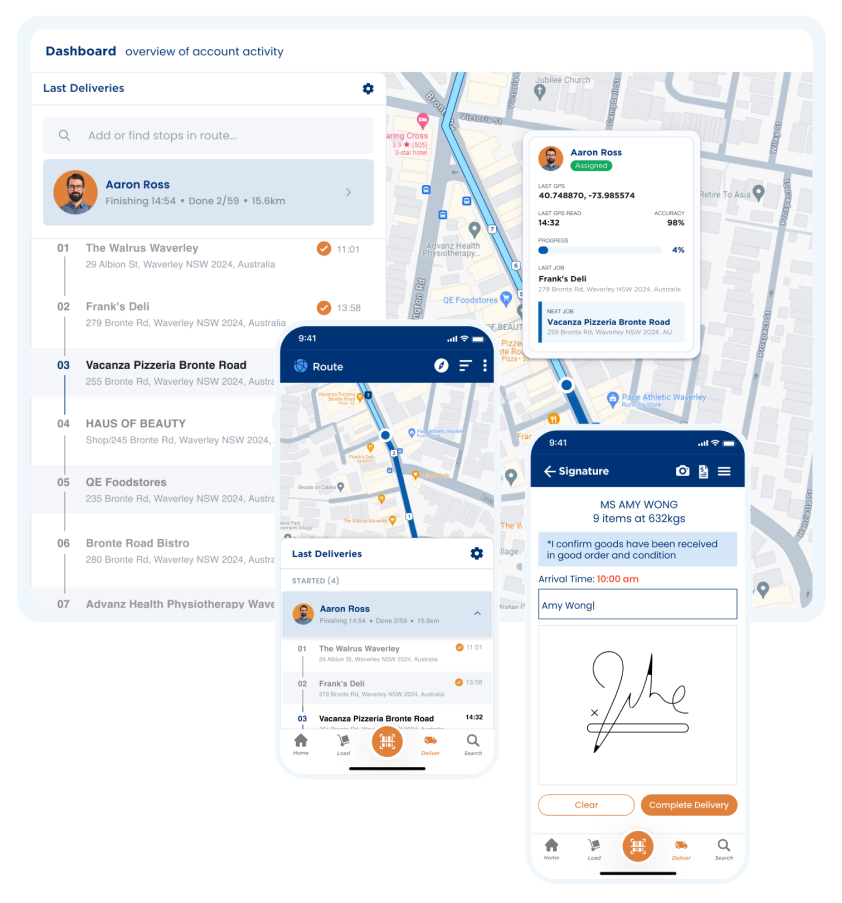
Quickbooks Integration
Recognizing the widespread use of QuickBooks in the financial sector, we’ve seamlessly integrated it into our platform. This ensures that invoicing and financial tracking are more streamlined than ever, catering to a growing range of business operations and industries.
iOS Application
As the ever-increasing number of Apple device users grow, our new iOS application ensures that every client, regardless of their device preference, has access to our top-tier service on-the-go.
Route Optimisation
Greater efficiency is key in the transport and logistics industry. Our enhanced route optimisation tools ensure that deliveries are made in the most time-effective manner, saving both time and money.
Security Upgrades
In today’s digital age, data security is paramount. Our move from FTP to SFTP and achieving ISO certification means that the safety of our users’ data is at its best.
Other Improvements
More modern UI, consignments search & manifests, stability improvements, EDI rules and BI reporting upgrades. Look out for our bulk module coming soon with enhanced load optimisation.
Choose TransVirtual and experience the future of transport management today.
